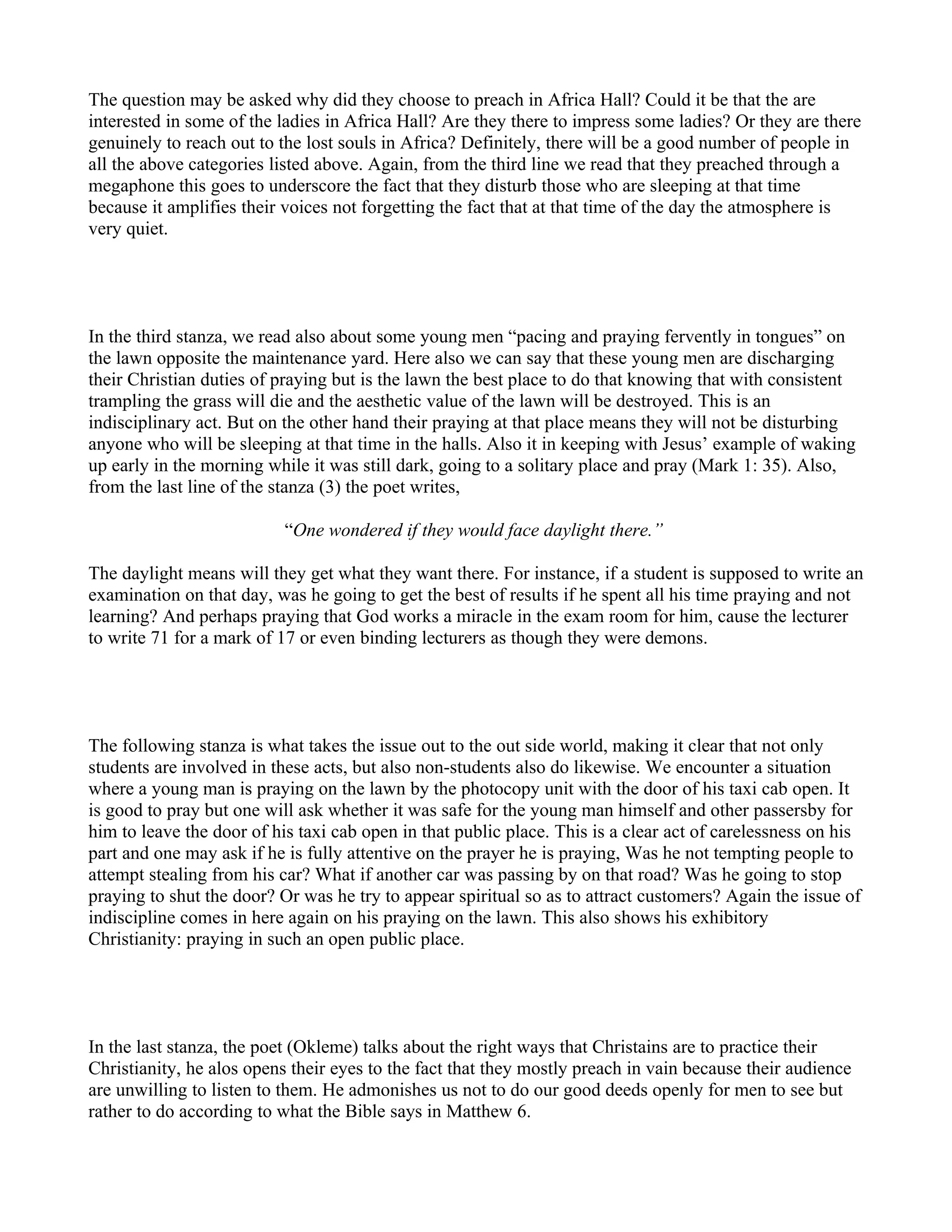The poem provides a social commentary on the behaviors of some Christians in Ghana. It describes Christians disturbing others by praying loudly at dawn behind dormitories and with megaphones. While some are genuinely preaching the gospel, others may be exhibiting their faith or trying to impress others. The poem encourages Christians to practice their faith at appropriate times and places, and not to be hypocritical or careless in their actions. It also emphasizes the importance of continuing evangelism efforts.






